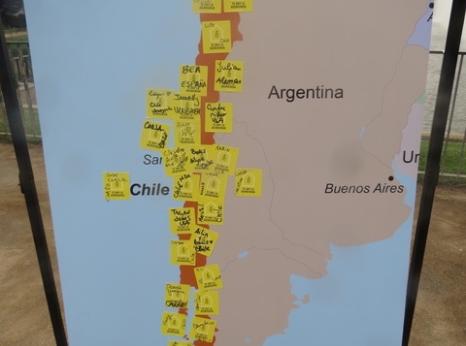Chile: Refugees And Migrants Face Criminalization

The bill contained in Bulletin No. 15261-25, which provides for criminal sanctions against persons who enter or stay in the country irregularly - including prison sentences - is contrary to the 1951 Geneva Convention on Refugees, in particular article 31 on non-criminalization of the irregular entry of asylum seekers and refugees.
Furthermore, experts and human rights bodies at the Inter-American and United Nations level have reiterated that irregular entry and stay should never be treated as a criminal offence. Criminalization of irregular migration is, under international law, unnecessary and disproportionate and can lead to arbitrary detention.
The aforementioned bill is not an isolated effort to criminalize irregular migration in Chile. This discussion and upcoming vote take place in a context of increasing stigmatization of foreign people in the country, in particular towards Venezuelan people in need of protection.
In response to the increase in the number of people arriving in the country, in February 2023, the government ordered the militarization of the northern border. In addition, since the second half of 2022, the legislative and executive branches have been promoting several legislative reforms that would violate the rights of asylum seekers and migrants.
As of March 2023, an estimated 7.24 million people had fled Venezuela due to the complex humanitarian emergency and massive human rights violations being committed in the country. This is the largest refugee crisis in the Americas and one of the largest worldwide. Chile is the fourth largest host country for Venezuelan in Latin America and the Caribbean, after Colombia, Peru and Ecuador, with an estimated 444,400 Venezuelan nationals in its territory (a conservative figure as it dates from December 2021). Amnesty International considers that these people are refugees in accordance with the refugee definition set out in the Cartagena Declaration and incorporated into Chilean law.
In its report, "No one wants to live in hiding: Lack of protection for Venezuelan refugees in Chile", Amnesty International has identified a series of measures adopted or implemented by the authorities which, taken as a whole, in practice prevent people in need of protection, such as Venezuelans, from requesting asylum or accessing regular migration status in Chile. Given the impossibility of obtaining visas, people in need of international protection, such as Venezuelans, have no other option but to enter irregularly. Others are exposed to refoulement at the border, which is prohibited by international law and puts them at greater risk of grave human rights violations. For those in need of international protection who manage to enter Chile, accessing refugee status or regularizing their migratory situation is extremely difficult, due to the illegal practice of requiring them to self-report their irregular entry and other arbitrary practices that violate international law and international refugee law. In 2021, The National Migration Service registered 3,867 asylum claims. Of these applications, 79% were from Venezuelan nationals. This year, out of the total number of applications received, only 19 were accepted, while 3,082 were rejected. In March 2023, Amnesty International warned that denying them access to the procedure to be recognized as refugees puts them at serious risk of being returned to places where their lives and rights are at risk.